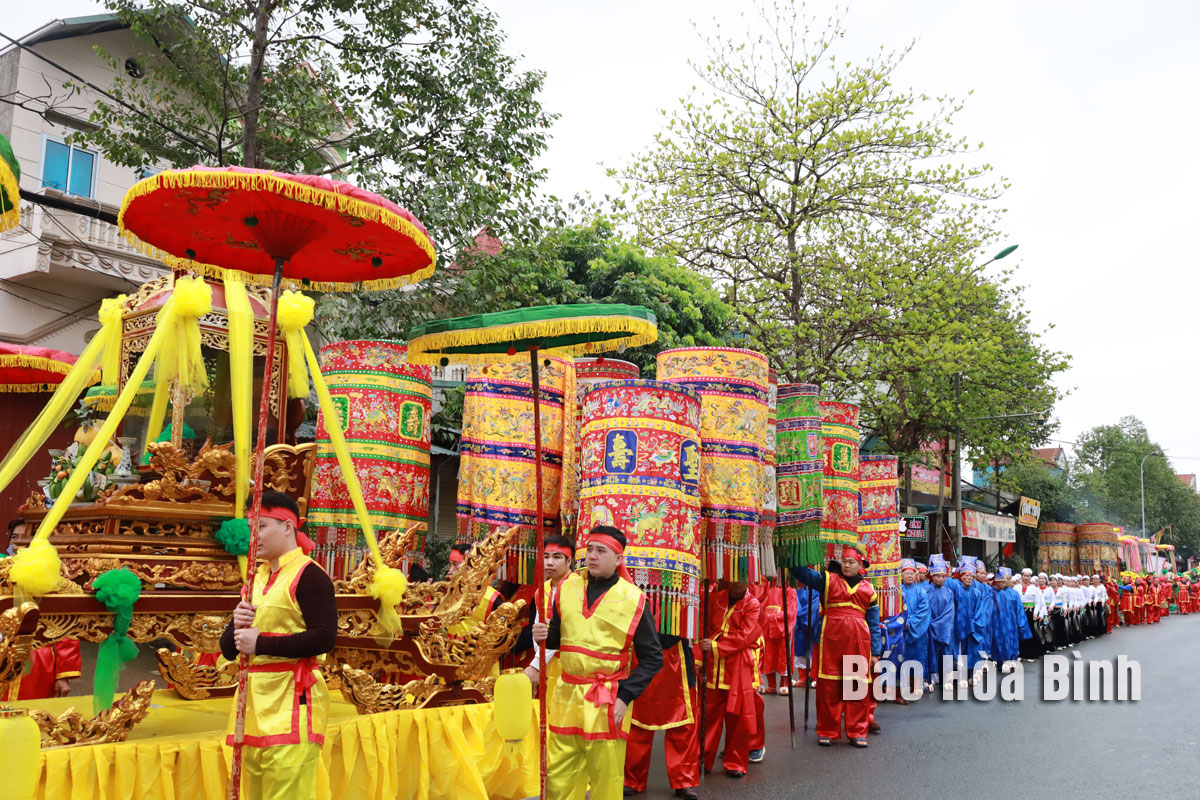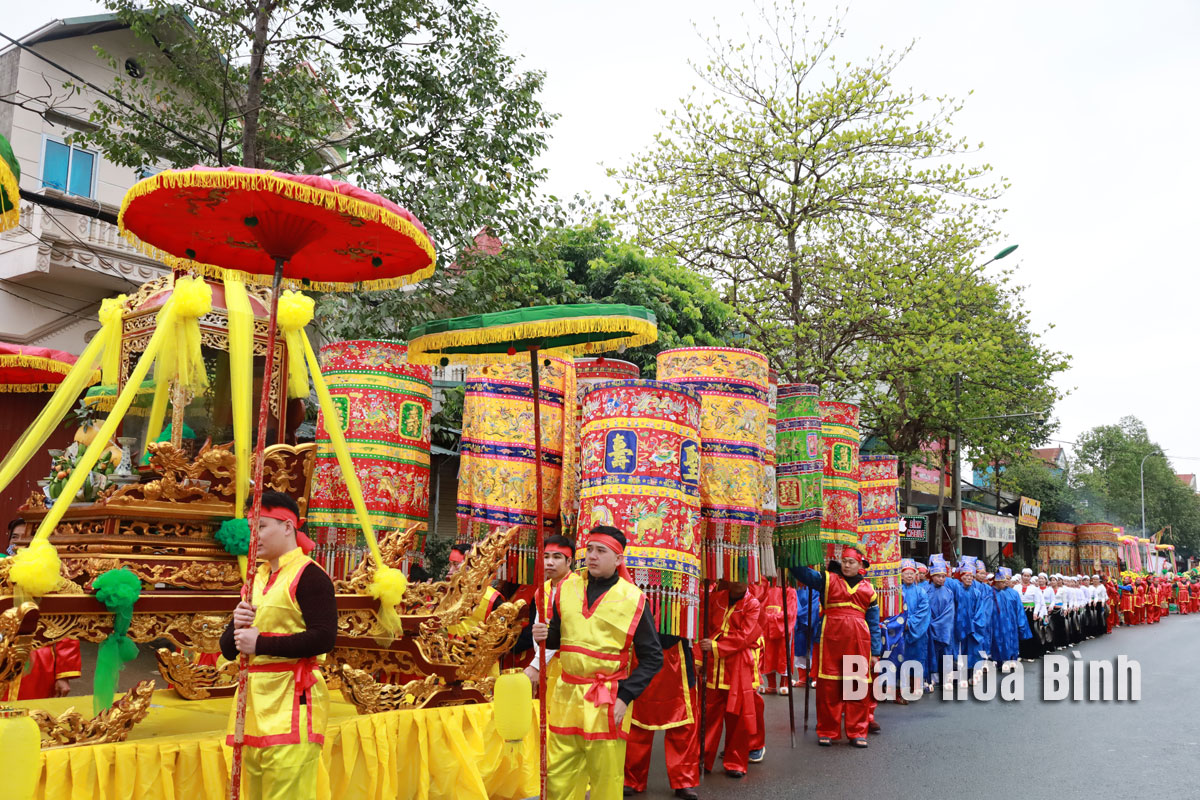
From March 10th – 11th, the People's Committee of Cao Phong town (Cao Phong) coordinated with the Relics Management Board to organize the traditional festival of Thuong Bong Lai Temple in 2024.

The
people were performing the water procession ceremony at Thuong Bong Lai Temple.
Located
at the foot of Rong Head Mountain, in Area 3, Cao Phong town, the temple
worships the Second Thuong Nga Fairy Lady (Co Doi Thuong Ngan) and the saints
of the four realms in the Mother Goddess religion. The temple dates back to the
2nd year of King Thanh Thai's prosperity (Canh Dan year 1890). Through the wars
and ups and downs of the history, the temple was degraded and lost. In 2013,
the temple was rebuilt with flowers and beauty, and the entire architecture was
completed. Every February 2nd of the lunar calendar, the temple
festival opens to admire, worship and pay tribute to Co Doi Thuong Ngan, the
temple's keeper.
Thuong
Bong Lai Temple Festival includes a ceremony and a festival. The ceremony takes
place with a full sequence of rituals, including the water procession ceremony
with the participation of many people moving from Thuong Bong Lai Temple to
Dong Son Temple. The festival is vibrant with the cultural activities, sports,
and folk games (sack jumping, goat catching, pot smashing...).
The
festival attracts a large number of people and tourists from all over to offer
incense, admire, express their respect and filial piety towards their
ancestors, and pray for blessings for the country - people's peace, prosperity,
protecting a peaceful life, moving towards truth - goodness - beauty.
With an increasingly vibrant and widespread emulation movement aimed at building cultured residential areas and cultured families, Yen Thuy District has been making steady progress toward improving both the material and spiritual well-being of its people, while fostering a civilized, prosperous, beautiful, and progressive community.
Once lacking recreational spaces and community facilities, Residential Group 2 in Quynh Lam Ward (Hoa Binh City) has recently received attention for the construction of a new, spacious, and fully equipped cultural house. The project followed the model of state support combined with public contributions in both labor and funding.
The "All people unite to build cultural life" movement, which has been effectively integrated with Kim Boi district’s socio-economic development goals, is fostering a lively spirit of emulation across local residential areas, hamlets, villages, public agencies, and enterprises. In addition, through the initiative, traditional cultural values are being preserved and promoted, while community solidarity and mutual support in poverty reduction and economic development are being strengthened.
A working delegation of the Hoa Binh provincial People’s Committee led by its Permanent Vice Chairman Nguyen Van Toan on June 11 inspected the progress of a project to build the Mo Muong Cultural Heritage Conservation Space linked to tourism services in Hop Phong commune, Cao Phong district.
Born and growing in the heroic land of Muong Dong, Dinh Thi Kieu Dung, a resident in Bo town of Kim Boi district, in her childhood was nurtured by the sweet lullabies of her grandmother and mother. These melodies deeply imprinted on her soul, becoming an inseparable part of her love for her ethnic group's culture. For over 20 years, this love for her hometown has driven Dung to research, collect, and pass down the cultural values of the Muong people to future generations.
In the final days of May, the Ethnic Art Troupe of Hoa Binh Province organized performances to serve the people in remote, mountainous, and particularly disadvantaged areas within the province. These were not just ordinary artistic shows, but they were the meaningful journeys aimed at spreading cultural values, enhancing the spiritual life of the people and contributing to the preservation of ethnic minority cultural identities.



